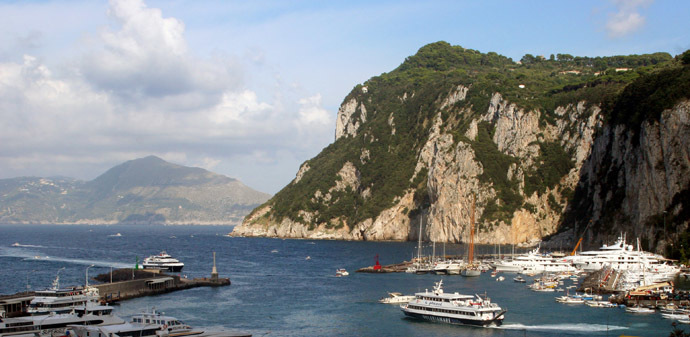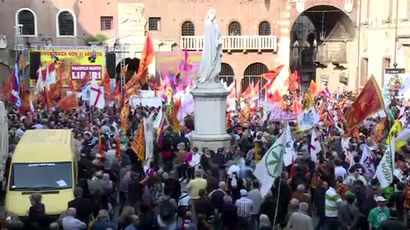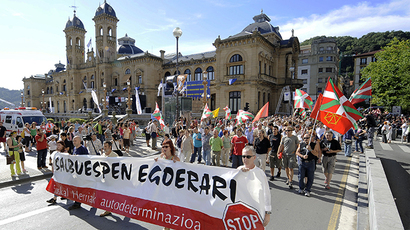EU elections: Seven regions in Europe that would rather go it alone
As EU parliament elections loom, the number of regions seeking to go it alone is increasing. Both resurgence in nationalist pride and disappointment at Brussels’ centralized economic management have led to an increase in separatist moods.
Scotland
On 18 September, Scotland is voting in a referendum over whether it wants to become an independent country or remain part of the United Kingdom. With five months to go until the vote, polls show that support for independence is steadily growing.
An ICM poll last month showed that support for independence is now 39 percent, while those who would vote to stay in the UK has fallen to just 42 percent. When people who haven’t yet made up their mind are stripped out, the results are 55-45 in favor of staying in the UK, the Scotland on Sunday newspaper, who ordered the poll, said.
First Minister of Scotland Alex Salmond found the poll’s results encouraging.
“These are very encouraging polls and show the yes campaign has the momentum because it is more positive and more trusted than the no campaign,” he said.

Salmond argues that Scotland would benefit economically from being able to manage its own affairs. He also argues that Scottish independence would be better for the North of England because the UK economy is too centered on London and the South East.
The ‘No’ campaign has relied on scare tactics, such as how Scotland won’t be able to keep the pound and why people will be worse off financially out of the UK.
Catalonia
In April, Spanish lawmakers voted overwhelmingly to reject a request by authorities in Catalonia to have a referendum on independence on November 9. A large majority of 299 MPs voted against the motion, with just 47 in favor. The region in the North East of Spain already enjoys a wide degree of autonomy, but the economic crisis in Spain has led to a surge in Catalan nationalism.
The Catalans argue that, as Spain’s richest region, they would be better off economically if they split from Madrid.
Spanish Prime Minister Mariano Rajoy maintains that a referendum would be illegal, because under Spanish law referendums on sovereignty must be held nationally and not regionally.
“Together we all win, but separate we all lose. This isn’t just a question of law, but of sentiment…I can’t imagine Spain without Catalonia or Catalonia out of Europe,” he told parliamentarians prior to a seven-hour debate on the issue.
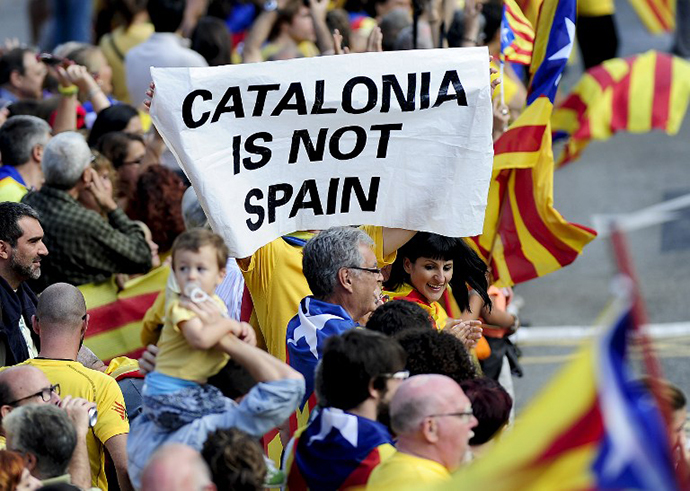
Venice
In March, 2.1 million Venetians, 89 percent of voters, chose independence and to break from Rome. But Italian law is clear that it will not allow Venice any independence, so the poll was quite informal.
But unlike Scotland and Catalonia, which already have strong regional governments, Italy’s regions have little legislative autonomy and little hope of gaining more. In a 2006 referendum, the Italian electorate rejected constitutional reforms that would have devolved more power to the regions.
The situation frustrates Venetians who live in one of Italy’s most prosperous regions, yet Venice receives only five euros from the Rome government for every seven euros it pays in taxes. Venetians would be much better off as an independent nation.
Since the economic crisis of 2008, 85,000 Venetians have lost their jobs and 8,000 businesses have disappeared from the region.They insist they would be much richer if they split from Rome and managed their own affairs.

Flanders and Wallonia
Belgium is split between Dutch speaking Flanders in the North and French speaking Wallonia in the South. If Flanders decides to go it alone, then Belgium may cease to exist as a country.
This would mean that French speaking Wallonia would seek to join Paris as the region has shared everything with France and has been French in everything but name.
Many in France would be happy to welcome Wallonia.
“If Belgium falls and Flanders declares independence which seems more and more possible every day, France will welcome Wallonia with pleasure,” said Marine Le Pen, leader of the French nationalists.
The leader of the Flemish Nationalist Party (N-VA), Bart de Wever, whose party made big gains in the local elections of 2012, has said he doesn’t want to leave Belgium but wants to turn it into a confederation, in which the Dutch speaking North has fiscal independence but shares some things such as defense with French speaking Wallonia.
Polls show the New Flemish Alliance (N-VA) separatist party will get 32 percent of the vote in the upcoming elections
"If they make a strong electoral showing, however, I think they'll bring the (Flemish) nationalist question up again after the vote," said political scientist Dave Sinardet in a recent debate.
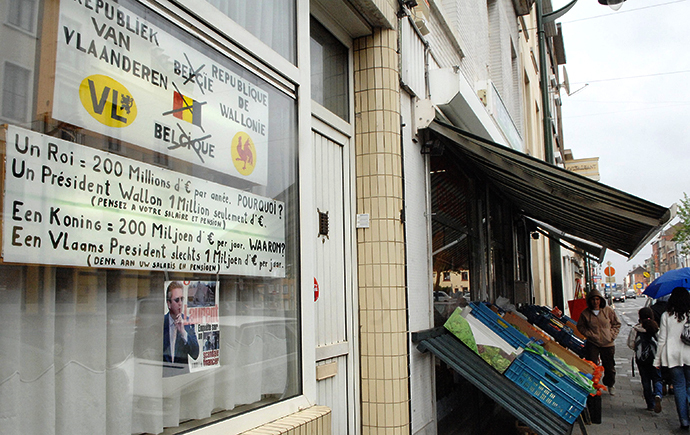
Brittany
A less known independence movement is Brittany in northwestern France.A poll in January found that one in five Bretons want independence from Paris. Yves Pelle, the chairman of the Breton nationalist party, was said to be “favorably surprised” by the poll.
Brittany has long been isolated from the rest of France. Breton is a Celtic language close to Cornish and Welsh and has recently undergone something of a revival. Efforts to assert a distinct Breton cultural identity enjoy much greater support than political nationalism.
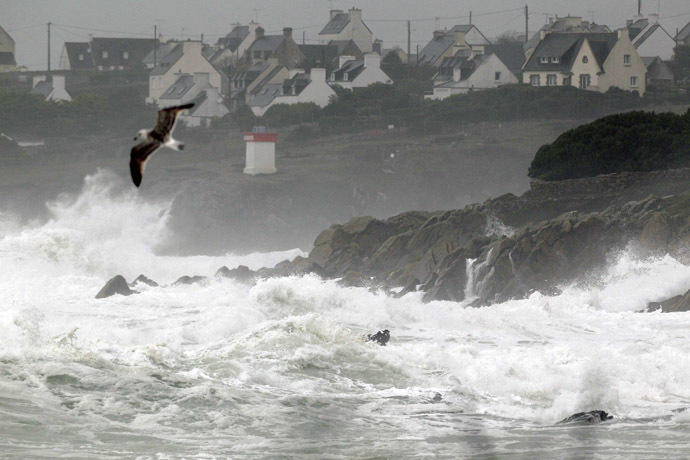
Sardinia
Another little known separatist movement is the Italian island of Sardinia in the Mediterranean.
According to a recent poll commissioned by the University of Cagliari, 40 percent of Sardinians would be in favor of independence, while 60 percent want greater autonomy from Rome.
However, due to the large number of political parties that support independence on the island, the independence camp has been disjointed and lacking in unity.In the 2014 regional election there were more than ten Sardinian parties of various connotations: for example, autonomist, separatist, right and left wing etc.
There was also a tongue-in-cheek campaign earlier this year, selling the idea that Sardinia should join Switzerland. A Facebook group has been started to hawk Sardinia to the Swiss, suggesting Sardinia becomes Switzerland's 27th canton to help reduce the national debt.
